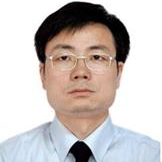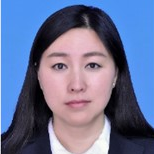Casting Process, Processing Deformation and Microstructure Optimization of Advanced Metallic Materials
A special issue of Metals (ISSN 2075-4701). This special issue belongs to the section "Metal Casting, Forming and Heat Treatment".
Deadline for manuscript submissions: 20 December 2024 | Viewed by 125
Special Issue Editors
Interests: special alloy casting; solidification control; processing innovation; material and process modeling; ceramic crucibles
Interests: advanced steel rolling-heat treatment; new technology of reduced rolling; heat treatment process technology; material forming-heat treatment organization control
Special Issue Information
Dear Colleagues,
Metal casting, as a traditional foundational technology, can directly manufacture various complex components required in the automotive, aerospace and other fields. However, problems such as pores and coarse grains that may occur during the metal casting process affect the performance of materials. In addition, some special metals are processed and deformed to satisfy the needs of industrial applications. However, specific microstructure evolution also occurs during the process of processing and deformation, which affects the quality of the product. Therefore, understanding and controlling the microstructural evolution of metals and alloys during casting or deformation processes will be able to effectively control the mechanical properties of the material. Optimizing and regulating the casting process and deformation ability of metals is one of the important directions for the future development of metal materials.
All articles concerning high-strength titanium alloys, nickel-based superalloys, high-entropy alloys, aluminum alloys, magnesium alloys, and their new casting methods or deformation technologies are welcome.
Dr. Guohuai Liu
Prof. Dr. Zhaodong Wang
Dr. Yanmei Li
Guest Editors
Manuscript Submission Information
Manuscripts should be submitted online at www.mdpi.com by registering and logging in to this website. Once you are registered, click here to go to the submission form. Manuscripts can be submitted until the deadline. All submissions that pass pre-check are peer-reviewed. Accepted papers will be published continuously in the journal (as soon as accepted) and will be listed together on the special issue website. Research articles, review articles as well as short communications are invited. For planned papers, a title and short abstract (about 100 words) can be sent to the Editorial Office for announcement on this website.
Submitted manuscripts should not have been published previously, nor be under consideration for publication elsewhere (except conference proceedings papers). All manuscripts are thoroughly refereed through a single-blind peer-review process. A guide for authors and other relevant information for submission of manuscripts is available on the Instructions for Authors page. Metals is an international peer-reviewed open access monthly journal published by MDPI.
Please visit the Instructions for Authors page before submitting a manuscript. The Article Processing Charge (APC) for publication in this open access journal is 2600 CHF (Swiss Francs). Submitted papers should be well formatted and use good English. Authors may use MDPI's English editing service prior to publication or during author revisions.
Keywords
- high-temperature alloy
- high-entropy alloys
- high-strength Al and Mg alloys
- new casting method
- grain refinement
- material and process modeling
- thermal deformation
- processing innovation







